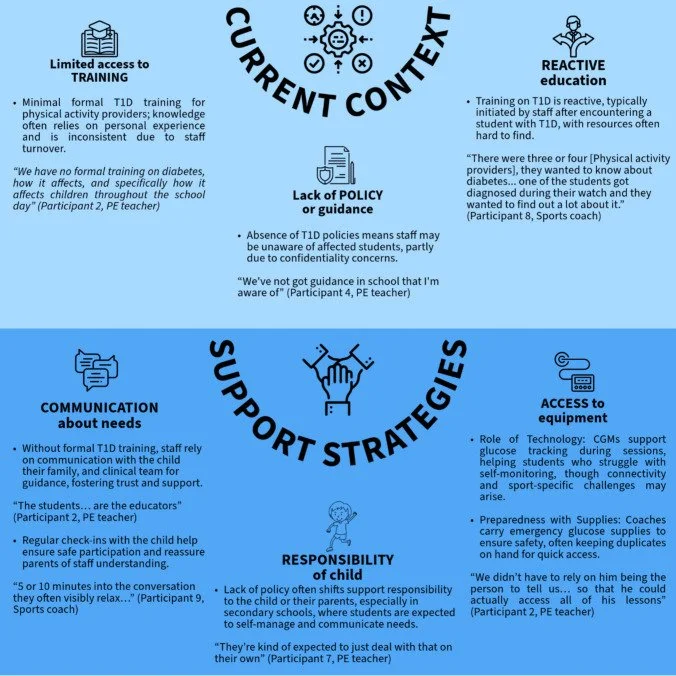Aim:
This study explored the knowledge, confidence, and support strategies used by physical activity providers when working with adolescents with T1D. The goal was to identify current gaps and opportunities for improving inclusion and safety in physical activity settings.
Methods:
A mixed-methods approach was used. Thirty-four physical activity providers across school and community settings completed a survey, and nine participated in in-depth interviews. Data were analysed to explore confidence levels, training experiences, and approaches to diabetes-related support.
Key Findings:
Only 29% of providers had received any formal training related to T1D.
Just 12% were aware of relevant school or organisational policies supporting students with chronic health conditions.
Most relied on personal experience, parental input, or trial-and-error to manage diabetes-related issues.
Providers expressed a strong willingness to support adolescents with T1D but lacked structured guidance and resources to do so confidently and safely.
Conclusions & Recommendations:
The study highlights the need for clear, accessible training and guidance tailored for physical activity providers. Schools and organisations should adopt consistent policies and ensure staff have access to practical, confidence-building resources. Supporting adolescents with T1D requires a shared responsibility—and this paper underscores the role that better-informed activity providers can play in creating safer, more inclusive environments for all.

